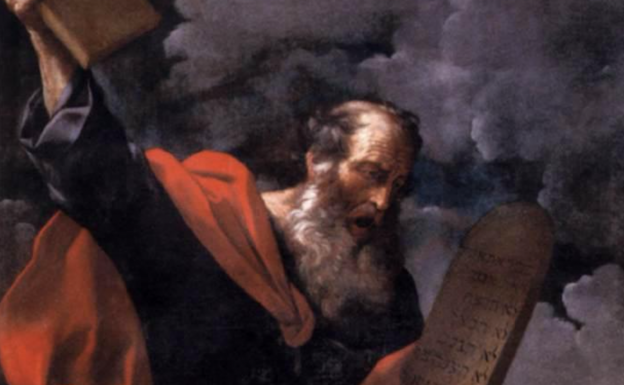Some forms have to be filled in precisely and completely. For instance, when I applied for our marriage license many years ago, the official checked I had filled in all parts of the form accurately. It was important to get it right; the form could not be accepted (and marriage license issued) otherwise.
If that is the case for a government issuing a license, how much more for the worship of God?
After the people appointed Moses as their intermediary, God spoke to the people through Moses to remind them to worship him only. They had seen and heard God directly; in their worship, they were only to do so as he required, not as the surrounding nations worshiped.
God’s People at Sinai were blessed with a direct revelation from God. God instructed Moses to remind the Israelites of this. “Thus you shall say to the people of Israel: ‘You have seen for yourselves that I have talked with you from heaven’” (Exodus 20:22).
The Israelites were privileged to have heard and seen God step down from heaven (figuratively) and speak to them, but even with this revelation they could be tempted to leave aside worship of God.
Therefore, so soon after the words spoken by God from the mountain, God reminds them not to violate the First and Second Commandments. “You shall not make gods of silver to be with me, nor shall you make for yourselves gods of gold” (Exodus 20:23).
In their day, the pagan nations created idols resembling people or animals from Creation, which were either cast in solid metal or laminated over a wooden shape. Either way, the idol was a very expensive and visible creation of people, not God. However expensive and well-crafted it was, it would not compare to God.
If the Israelites made idols of gold or silver, whether or not it was meant to represent God, they were violating his commands. They had already experienced God’s direct presence, and recognised in it God’s amazing power. They responded in fear and trembling. They should not be foolish enough to follow the pagan nations by trying to contain God.
The same accuracy was required for the altars on which they offered sacrifices. “An altar of earth you shall make for me and sacrifice on it your burnt offerings and your peace offerings, your sheep and your oxen” (Exodus 20:24).
The altars that they constructed for their offerings were to be simple affairs. Instead, the focus was on the sacrifices offered. The burnt offering, which symbolised the forgiveness of sin by God, and the peace offering, which symbolised the reconciliation of God and his people (see Leviticus 1 and 3). Both of these sacrifices pointed forward to Christ’s sacrifice on the Cross.
Those altars would not have to be scattered around the base of Mount Sinai, but could be anywhere the Israelites went, because “in every place where I cause my name to be remembered I will come to you and bless you” (Exodus 20:24). God is not located in one place but everywhere, and so worship of him can occur anywhere. And wherever people gather to truly worship God, he will come to bless in turn.
Just as the Israelites were banned from making idols, so they were also banned from making altars like the pagans. “If you make me an altar of stone, you shall not build it of hewn stones, for if you wield your tool on it you profane it. And you shall not go up by steps to my altar, that your nakedness be not exposed on it” (Exodus 20:25-6).
These instructions seem odd to us, but essentially they ban Israel from practices of the Canaanites. Hewn stones required great skill and precision, and focused the attention on the beauty of the altar and craftsmanship, not on the beauty of God. Steps raised the altar’s importance, and also provided the possibility of the sexually immoral practices of pagan priests being copied.
Instead, what God desired was worship and sacrifice which focused on him. God had rescued them from slavery, revealed his holy Law to them, and was establishing a system of sacrifice and worship to point forward to his dealing with their sin. He wanted them to follow his instructions, not their own (or others’) examples. Their altars were to focus on him.
We no longer have an altar at the front of our worship service, as Israel did. Instead, we have a pulpit, announcing God’s forgiveness of our sin through Jesus Christ. Like in Moses’ day, our worship should be focused on worshiping God in the way he has instructed us, and focused on God.
We do this because the many altars built pointed forward to the final altar, where Jesus offered himself up as a ransom for many. Through the Cross, which we celebrate weekly and especially at Easter, Jesus took away the wrath for our sins, cleansed us of unrighteousness, and reconciled us to God.
A simple wooden cross, on a hill hewn by God’s hands. Offered, just as God required.

